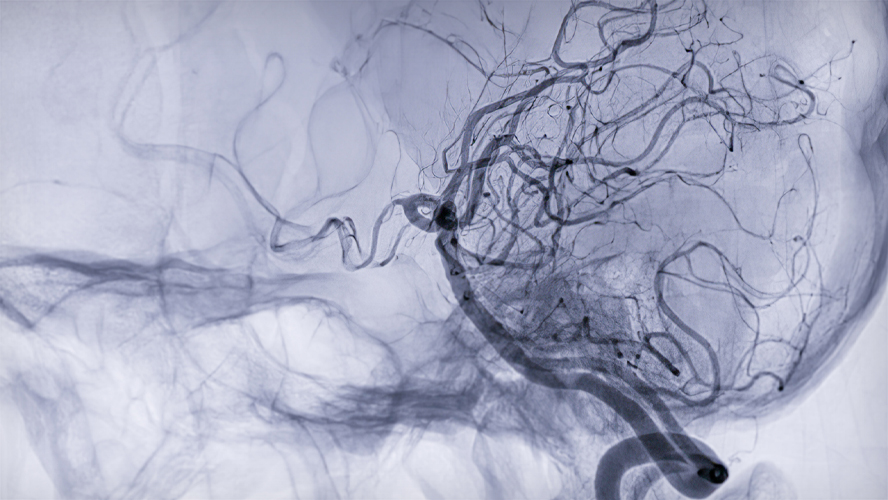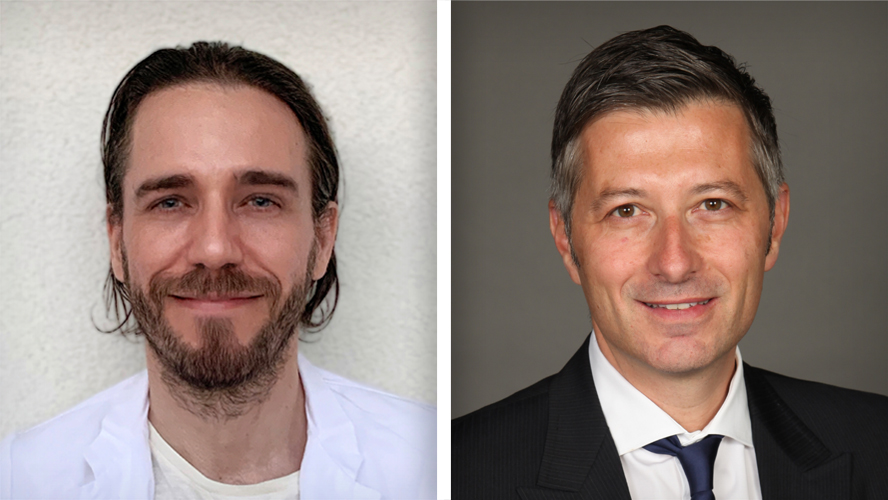
An international team of researchers led by scientists at UHN’s Krembil Brain Institute and the University of Zurich have created the first-ever single-cell atlas of the brain’s blood vessels, spanning from early development to adulthood and through disease stages. This breakthrough provides unprecedented insights into the brain’s network of blood vessels and how they grow, change, and function at a molecular level.
“The brain’s vasculature, or network of blood vessels, cells, genes, and pathways, is crucial for the proper functioning of the developing and adult brain, as well as the progression of brain diseases such as brain tumours, stroke, and brain vascular malformations,” says Dr. Thomas Wälchli, a Scientific Associate at the Krembil Brain Institute and first author of the study. “By understanding these pathways, we gain insight into the normal functioning of brain vasculature and open doors to future therapeutic options.”
Researchers analyzed over 600,000 cells from 117 samples of isolated blood vessels from human developing brains, adult brains, brain tumours and brains with vascular malformation. Using advanced cell sequencing techniques, researchers constructed a comprehensive molecular atlas of the brain’s vasculature.
They found that the cells lining blood vessels, which regulate interactions between the bloodstream and surrounding tissues, behave differently across various stages of brain development and may have an important role in the brain’s signalling networks.
Researchers also discovered that adult brain vasculature essentially stops growing over time, while tumours and malformations reactivate growth similar to early brain development. This previously undescribed behaviour sheds light on potential therapeutic targets.
Additionally, researchers revealed how brain vasculature differs from other organs and how disease alters its characteristics, impacting immune system interactions.
Dr. Wälchli notes the potential clinical applications of these findings, "If we can detect features shared between early brain development and brain tumours, we can monitor the brain’s vasculature for growth patterns, enabling earlier disease detection and improved patient outcomes.”
This research marks a significant advancement in brain vascular biology, benefiting scientists across multiple disciplines and paving the way for innovative treatments for brain diseases.
The international team includes researchers from UHN’s Krembil Brain Institute, Donald K. Johnson Eye Institute, Toronto General Hospital Research Institute, and Princess Margaret Cancer Centre, the University of Toronto’s Donnelly Centre, Mount Sinai Hospital’s Lunenfeld-Tanenbaum Research Institute, University of Zurich, University Hospital Zurich, ETH Zurich, University of Geneva, University Hospital Geneva, as well as collaborators at Weill Cornell Medicine, and Memorial Sloan Kettering Cancer Centerin New York.
This work was supported by UHN Foundation, the Canadian Institutes of Health Research, The Natural Sciences and Engineering Research Council of Canada, the Ontario Institute for Cancer Research and the Canada Research Chairs program, the OPO Foundation, the Swiss Cancer Research Foundation, the Stiftung zur Krebsbekämpfung, the Kurt und Senta Herrmann Foundation, Forschungskredit of the University of Zurich, the Zurich Cancer League, the Theodor und Ida Herzog Egli Foundation, the Novartis Foundation for Medical-Biological Research, the HOPE Foundation, and the US National Institute of Health’s National Center for Research Resources.
Dr. Ivan Radovanovic is Associate Professor at University of Toronto’s Temerty Faculty of Medicine. Dr. Thomas Walchli is a consultant neurosurgeon at University College London (UCL)’s Victor Horsley Department of Neurosurgery, and an Associate Professor/Principal Clinical Research Fellow at the UCL Cancer Institute.
Wälchli T., Ghobrial M., Schwab M., Takada S., Zhong H., Suntharalingham S., Vetiska S., Rodrigues Gonzalez D., Wu R., Rehrauer H., Dinesh A., Yu K., Chen E.L.Y., Bisschop J., Farnhammer F., Mansur A., Kalucka J., Tirosh I., Regli L., Schaller K., Frei K., Ketela T., Bernstein M., Kongkham P., Carmeliet P., Valiante T., Dirks P.B., Suva M.L., Zadeh G., Tabar V., Schlapbach R., Jackson H.W., De Bock K., Fish J.E., Monnier P.P., Bader G.D., Radovanovic I. Single-cell atlas of the human brain vasculature across development, adulthood and disease. Nature. 2024 Jul 10. DOI: 10.1038/s41586-024-07493-y

(L-R) Dr. Thomas Wälchli is a Scientific Associate at UHN’s Krembil Brain Institute and a consultant neurosurgeon at University College London; Dr. Ivan Radovanovic is a neurosurgeon and Senior Scientist at the Krembil Brain Institute.

